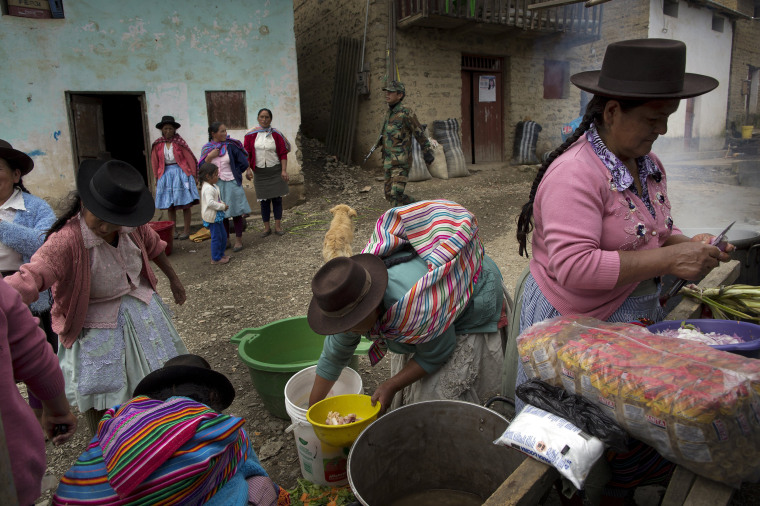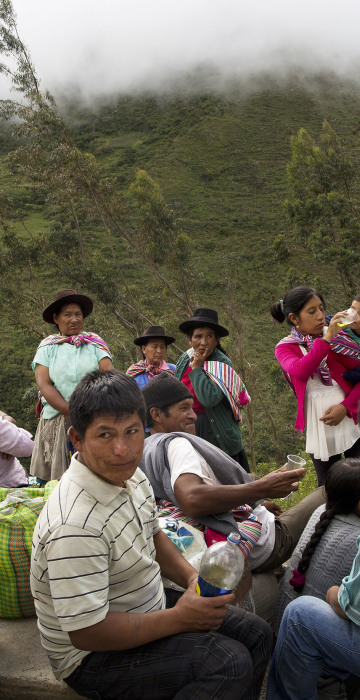
World
Shining Path Violence Haunts Peru Election Decades Later
Victims of the Shining Path conflict continue to be buried, reminding rural voters of the need for a firm hand against violence.
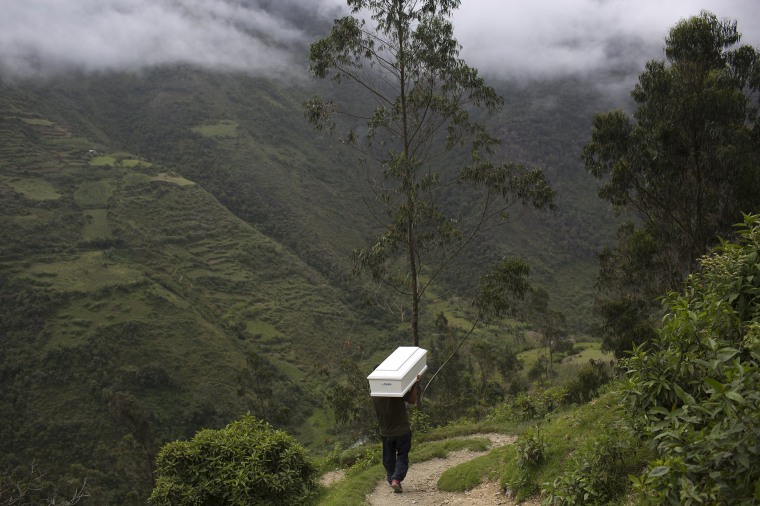
A man shoulders a coffin with the remains of a loved one who was slain more than two decades ago by Shining Path rebels, as he walks to the cemetery for a group burial service, in Ccano, a village in the Huanta area of Ayachcuo department, Peru on March 29, 2016.
Presidential candidate Keiko Fujimori's base of support is in places like Ccano, where promises to build roads, clinics and schools recall her agronomist father's own legacy of delivering aid to the long-overlooked countryside.
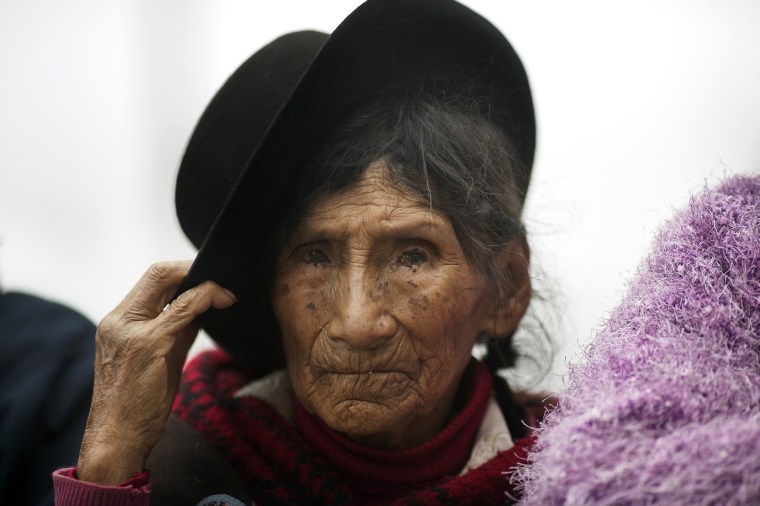
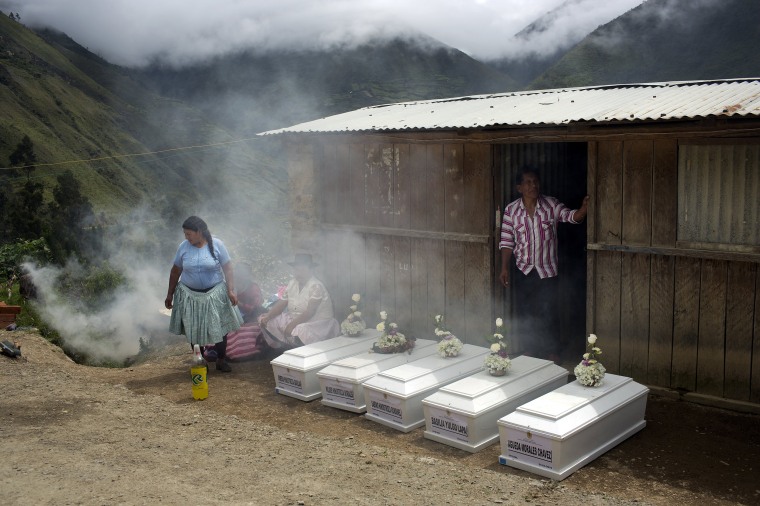
Villagers gather next to coffins holding the remains of their loved ones, who were slain more than two decades ago by Shining Path rebels, before burying them in the cemetery in Ccano.
In Ccano, many peasants worked with the military to fight the rebels, and the Shining Path stormed a church here in retaliation, killing everyone praying inside in 1991.
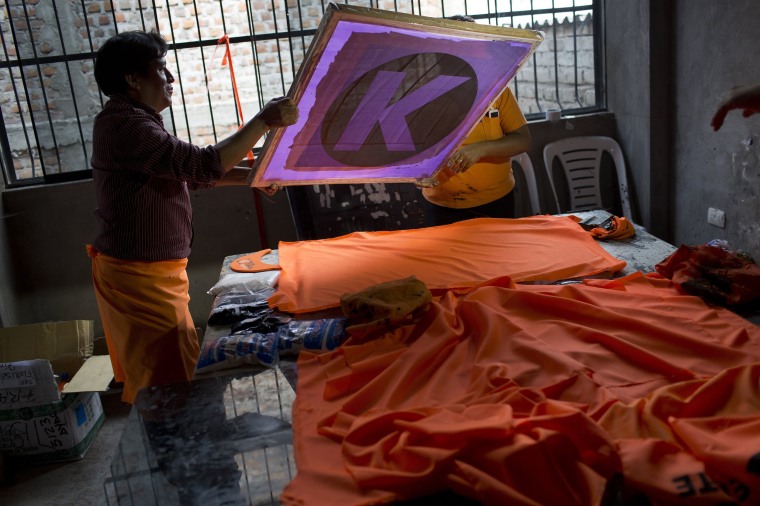
Workers create flags for Keiko Fujimori's presidential campaign in Ayacucho.
The bright orange campaign signs plastered on walls and houses promoting presidential hopeful Keiko Fujimori are an emblem of the impoverished community's continued loyalty to the candidate's father, imprisoned former president Alberto Fujimori, who the corn and potato farmers here credit with beating back a Maoist-inspired rebel group that slaughtered their parents and children during a brutal armed conflict.
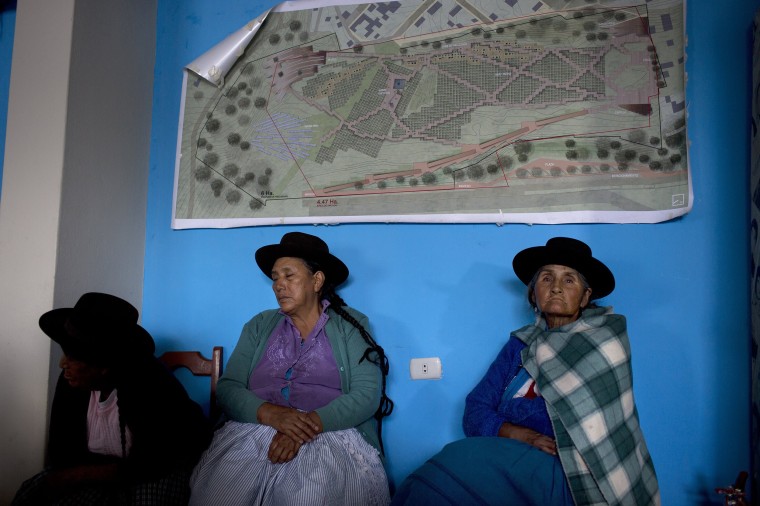
Women whose relatives were killed or disappeared during Peru's two decades of political violence (1980-2000) sit inside the Memory Museum in Ayacucho.
While about half of Peruvians say they would never vote for anyone connected to the former strongman Alberto Fujimori, rural voters haunted by the conflict that claimed 70,000 lives say the country needs a firm hand to keep violence at bay and plan to cast ballots for his daughter, Keiko Fujimori, in the April 10 election.
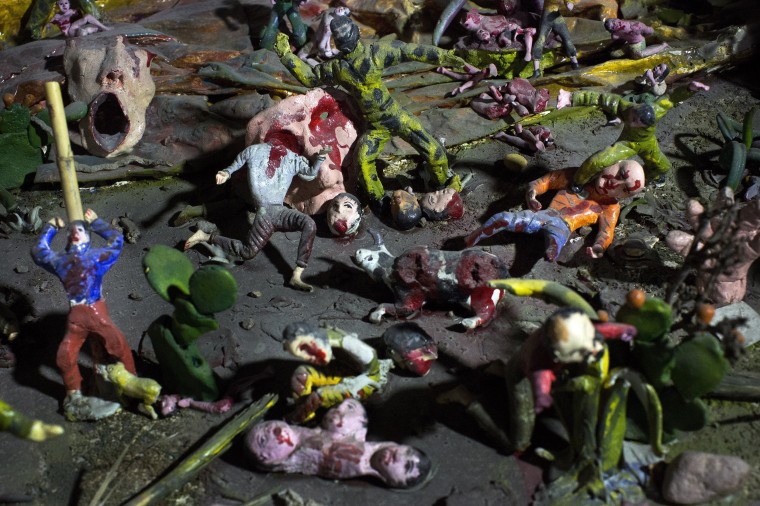

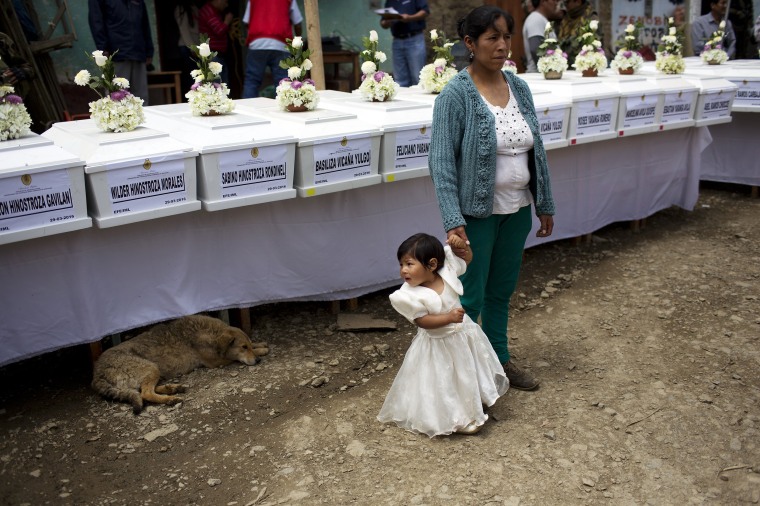
Villagers gather by coffins holding the remains of their loved ones before burying them in Ccano.
While some Peruvians remember Alberto Fujimori as the man who ordered the army to drive a tank to shut down Congress in 1992, reorganized the country's judiciary and sparked a constitutional crisis as a new constitution was drafted, those in rural areas like Ccano remember him beating back the Maoist-inspired rebel group that slaughtered their parents and children during a brutal armed conflict.
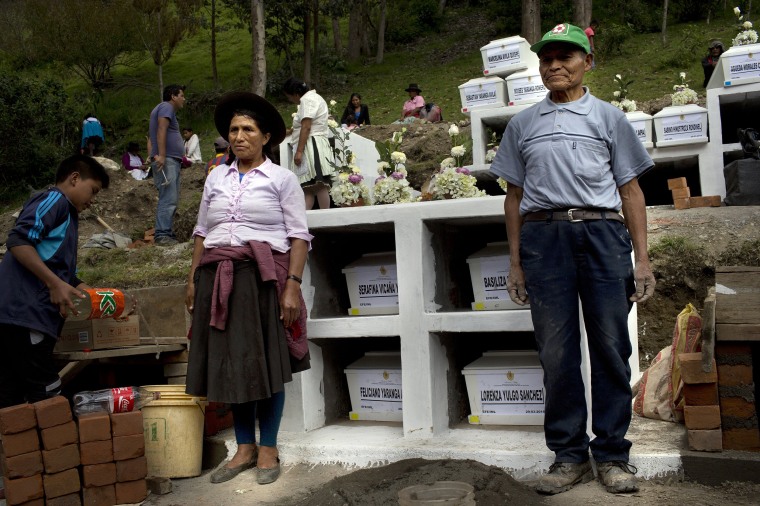
Vicente Vicana Lapa, 65, right, and a relative pose for pictures next to coffins holding the remains of his slain wife, two daughters and son-in-law, all of whom were killed inside their village church more than two decades ago by Shining Path rebels.
"Alberto Fujimori brought peace. He was a good man; without him, the Shining Path would have killed us all," said Vicana. Vicana worries that leftist insurgents could return if a weak leader were elected.
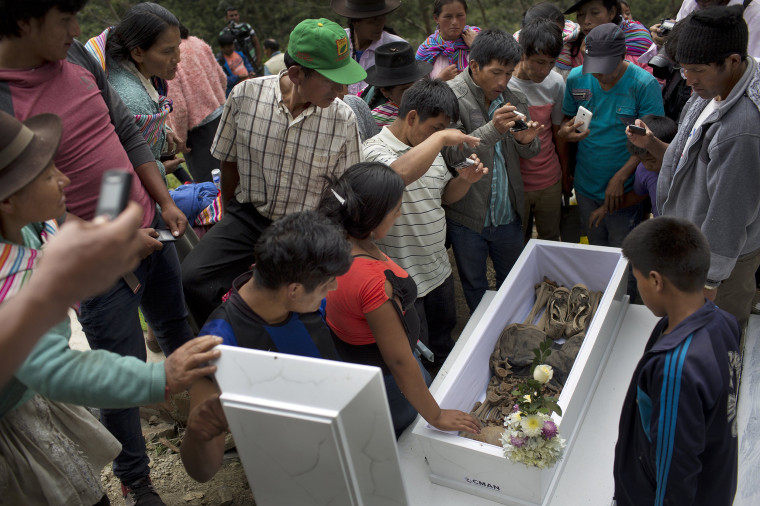
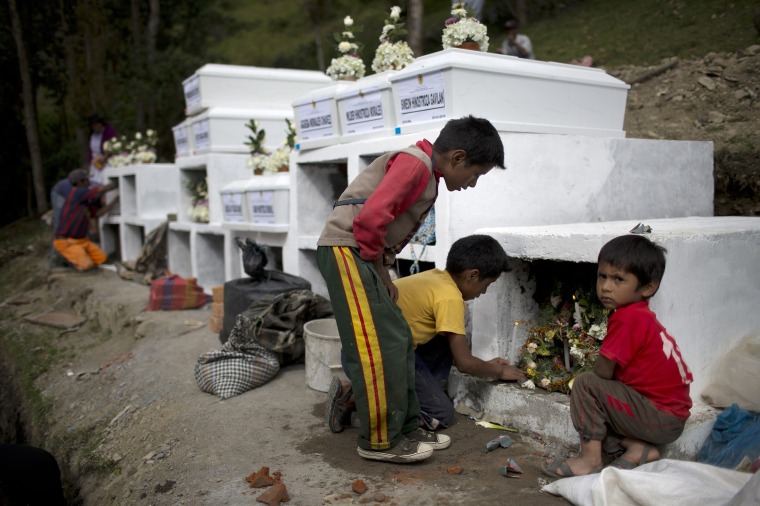
Children light candles in one of the niches of over 30 people killed by Shining Path rebels.
Gallery - Presidential Panic: Peru Protests Frontrunner Days Before Election
